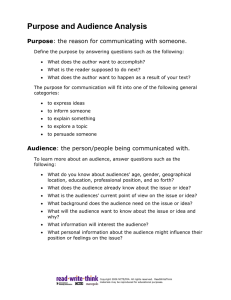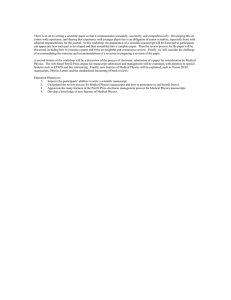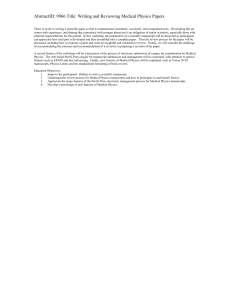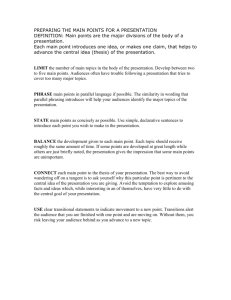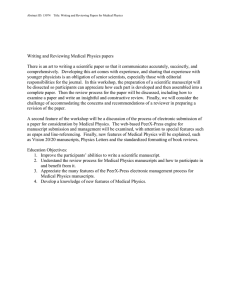Course information
advertisement
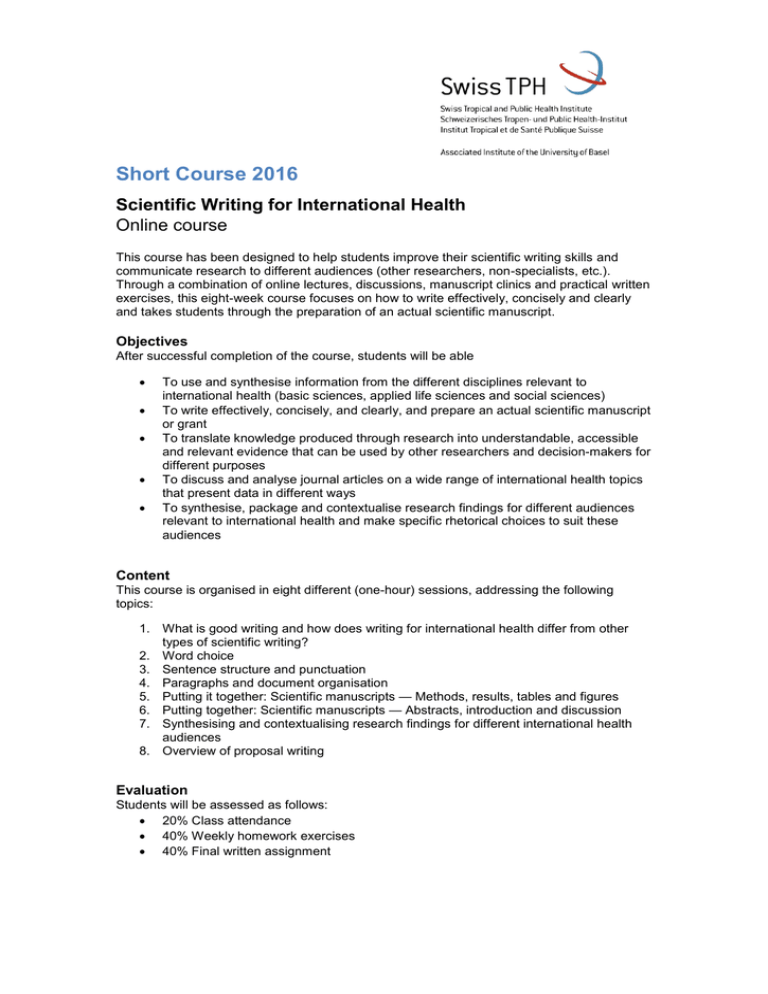
Short Course 2016 Scientific Writing for International Health Online course This course has been designed to help students improve their scientific writing skills and communicate research to different audiences (other researchers, non-specialists, etc.). Through a combination of online lectures, discussions, manuscript clinics and practical written exercises, this eight-week course focuses on how to write effectively, concisely and clearly and takes students through the preparation of an actual scientific manuscript. Objectives After successful completion of the course, students will be able To use and synthesise information from the different disciplines relevant to international health (basic sciences, applied life sciences and social sciences) To write effectively, concisely, and clearly, and prepare an actual scientific manuscript or grant To translate knowledge produced through research into understandable, accessible and relevant evidence that can be used by other researchers and decision-makers for different purposes To discuss and analyse journal articles on a wide range of international health topics that present data in different ways To synthesise, package and contextualise research findings for different audiences relevant to international health and make specific rhetorical choices to suit these audiences Content This course is organised in eight different (one-hour) sessions, addressing the following topics: 1. What is good writing and how does writing for international health differ from other types of scientific writing? 2. Word choice 3. Sentence structure and punctuation 4. Paragraphs and document organisation 5. Putting it together: Scientific manuscripts — Methods, results, tables and figures 6. Putting together: Scientific manuscripts — Abstracts, introduction and discussion 7. Synthesising and contextualising research findings for different international health audiences 8. Overview of proposal writing Evaluation Students will be assessed as follows: 20% Class attendance 40% Weekly homework exercises 40% Final written assignment Certification A certificate will be awarded to those participants who reach the acceptable level of performance, which is defined as 60% of the achievable maximum. 2 ECTS will be granted upon successful completion of this module. Prerequisites Students must show English language proficiency: TOEFL 550 (paper based), 213 (computer based), 79-80 (internet based) or IELTS 6.0, or English native speaker or completed higher education in English (with written proof). This course is conducted entirely online, therefore access to a reliable broadband internet connection is essential. Course fee The course fee is CHF 1,800 for students and CHF 1,600 for all Swiss TPH students and those registered as a tropEd Master student at a tropEd home institution. _____________________________________________________ Application Deadline: 17 December 2015 _____________________________________________________ For further information, please contact the course coordinator, Amena Briët at amena.briet@unibas.ch
